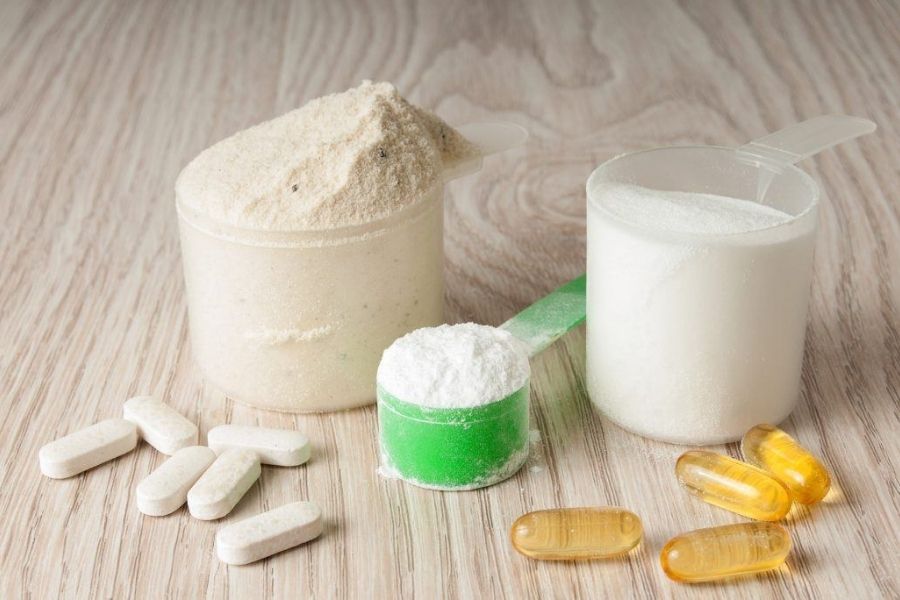People take supplements but excessive intake could be detrimental to health. Generally, individuals with a risk-prone deficiency are advised to take them. Usage of supplements is not mandatory; people can get the essential nutrients by having a nutritional, balanced diet. It has been shown in a study that Americans take one or more dietary supplements on a daily basis. Supplements are available without a prescription in pharmacy stores and usually come in a pill, powder, or liquid form.

Vitamins and minerals are essential nutrients that your body requires in small amounts to function properly, but it is not compulsory to take supplements. You can get the nutritional benefits by eating healthy food. However, supplements can help to compensate for gaps in the diet.
Few supplements might have side effects, especially if taken before a surgical procedure or mixed with other medicines. They can be problematic for people with pre-existing health issues. The effects of many supplements have not yet been tested on children, pregnant women, lactating women, etc.
So, talk with your physician or registered nutritionist if you are thinking of taking dietary supplements.
Dietary Supplements
Multivitamins and Calcium

The widely popular dietary supplements are multivitamins, calcium, and vitamins C, B, D. Among minerals, calcium helps to support bone health, and Vitamin D absorbs more calcium. Vitamins C and E are known to be rich in antioxidants that scavenge free radicals. The health effects of some other common supplements need more reviews and research like in the case of glucosamine (for joint pain) and herbal supplements such as echinacea (immunity) and flaxseed oil (digestion).
Vitamin D and Iron

Women need a good amount of iron during pregnancy and breastfed infants need a good amount of vitamin D from natural sources. It is to be noted that folic acid around 400 micrograms daily is important for all women of childbearing age.
Vitamin B12

Vitamin B12 is another vital vitamin that keeps nerve and blood cells healthy. Examples of foods containing Vitamin B12 are meat, fish, and dairy foods. If vegans or vegetarians have a deficiency, they can consider taking a supplement.
Many supplements have mild side effects with few risks. They should always be used with caution. It’s been shown that Vitamin K reduces the ability of blood thinners to work but Ginkgo can increase blood thinning. Just because a supplement is called “natural” doesn’t necessarily mean it’s safe.

A study by The Journal of the American College of Cardiology claims that the most common supplements like multivitamins, Vitamin D and Vitamin C might not protect against major cardiovascular diseases.
Still, many people take supplements even if the health benefits are negligible for a normally healthy individual. They assume that usage of supplements is an addition to their routine which can fulfill the essential nutrients requirement.
The greatest issue with supplements is that they are not regulated by the FDA (Food and Drug Association). With limited regulation, it’s also difficult to know for certain that the supplement contains the ingredients on the label and is free of contaminants.
Few research has shown that folic acid and B vitamins may reduce the risk of stroke. It is stated by Harvard researchers that men who consumed a multivitamin every day for 11 years had an 8% lesser risk of cancer.
Supplement Health Risks
Most supplements are quite safe to take, but there are certain exceptions when it comes to taking high doses. For example:
High doses of Beta Carotene have shown to be linked to a greater risk of Lung Cancer in smokers.

Extra amount of Calcium and Vitamin D may increase the risk of Kidney Stones.

High dosage of Vitamin E might cause a stroke due to bleeding in the brain.

Vitamin K might interfere with the anti-clotting effects of blood thinners.

High amounts of Vitamin B6 annually or more has been linked to Nerve Damage. It can impair body movements.

The Bottom Line
Overall, supplements are not bad as they can fill the gap of nutrient deficiencies besides taking from natural sources. It should be consumed within limits under the advice and supervision of a registered dietitian, nutritionist, or physician.







